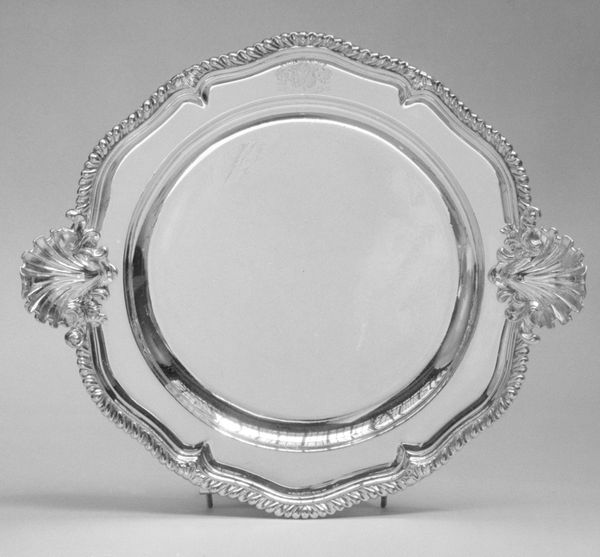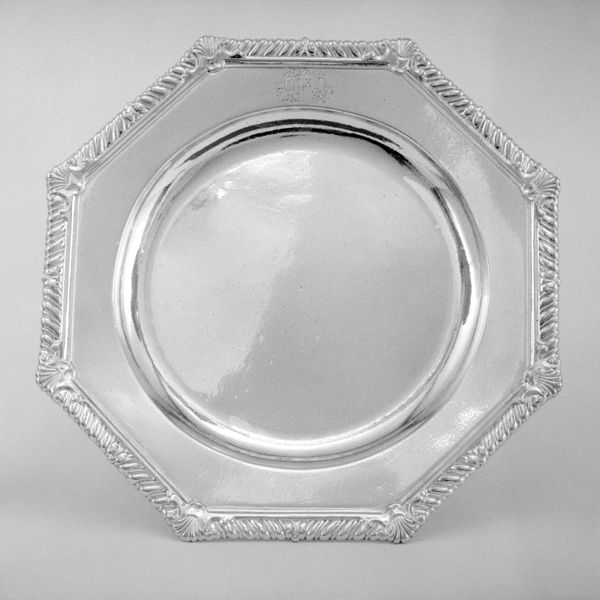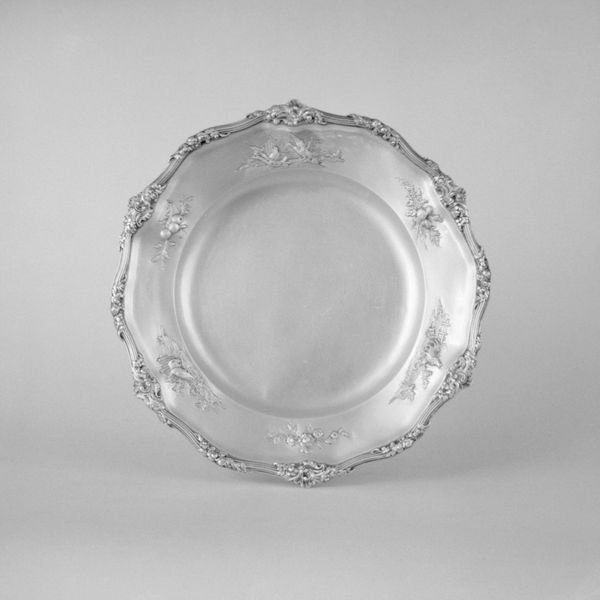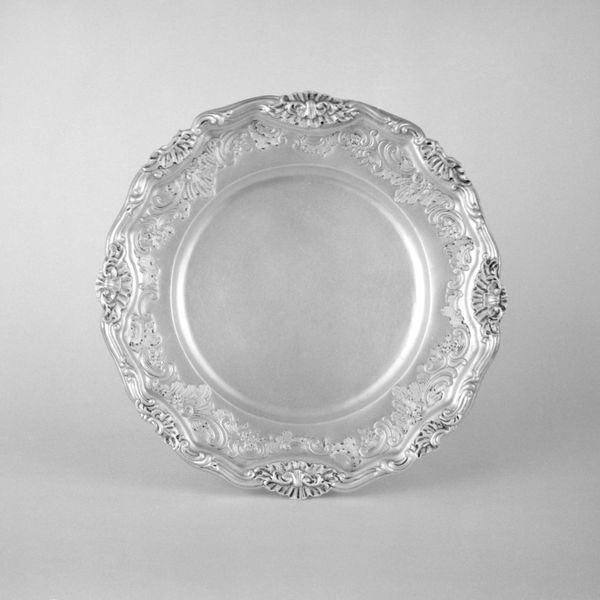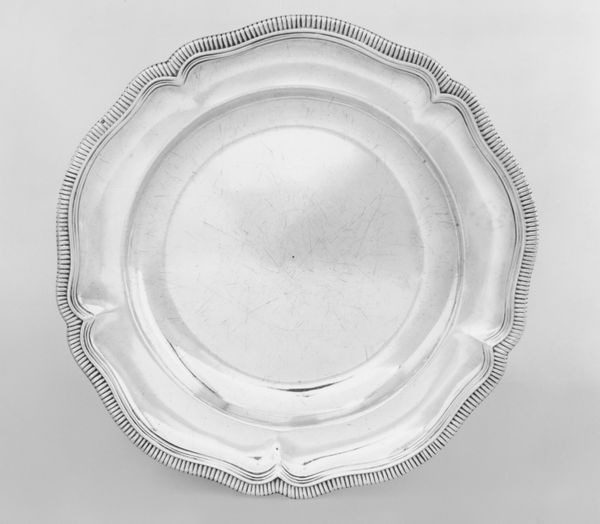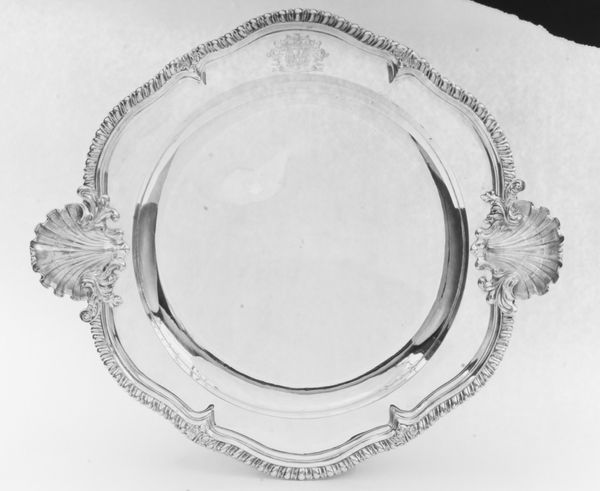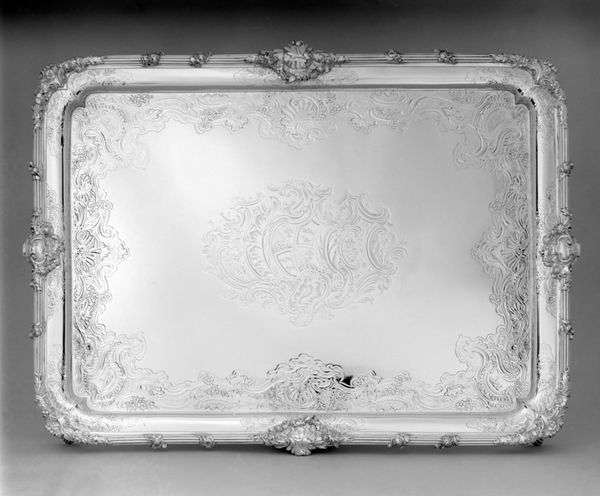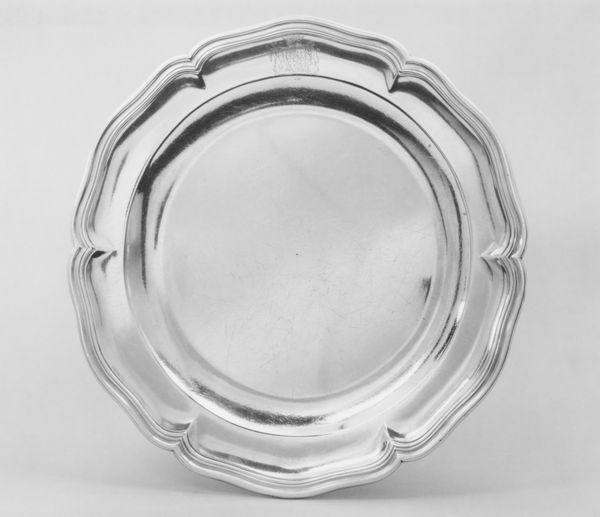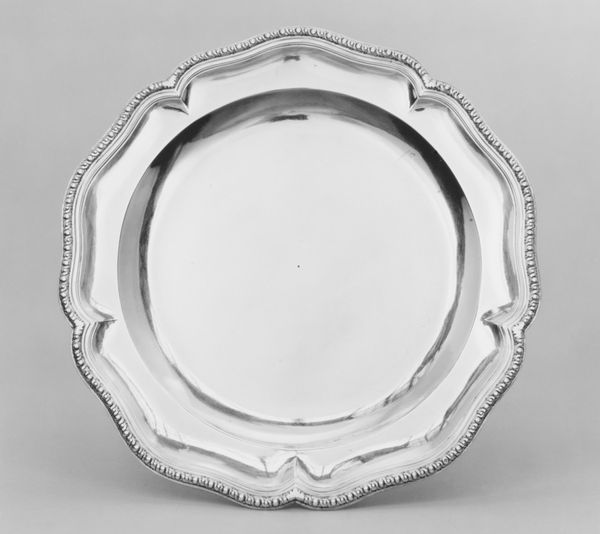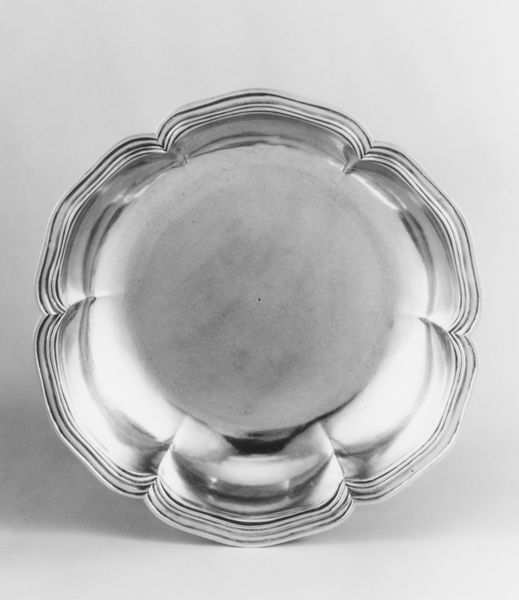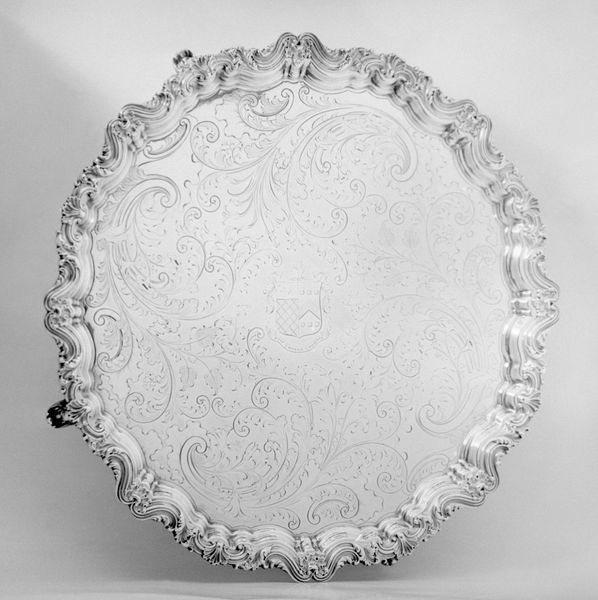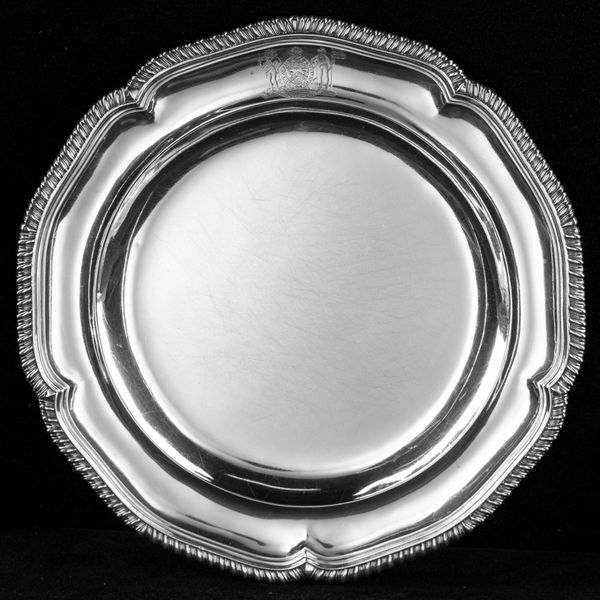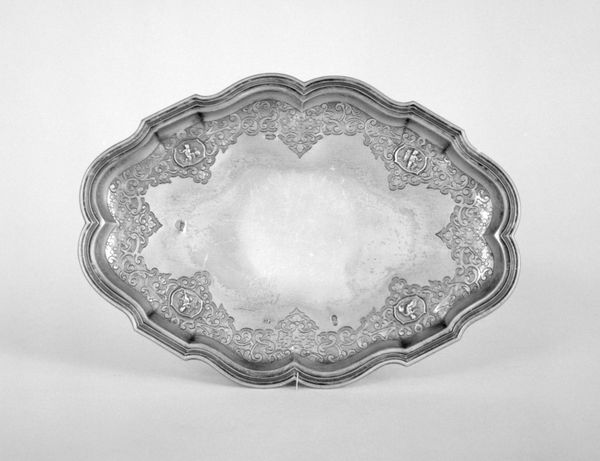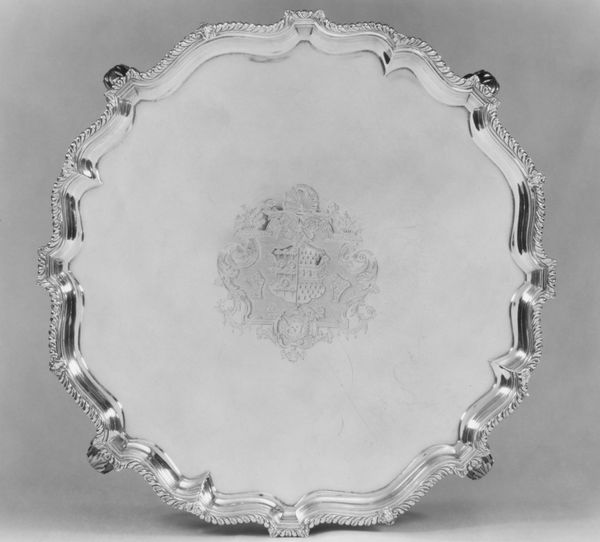
silver, metal, sculpture
#
silver
#
metal
#
sculpture
#
decorative-art
Dimensions: Width: 18 5/8 in. (47.3 cm)
Copyright: Public Domain
Editor: Here we have a silver dish, part of a set of seven, crafted by Paul de Lamerie around 1741-1742. It's currently held at the Metropolitan Museum of Art. The elaborate detail on the handles makes me wonder how it was produced. What strikes you about it? Curator: The production is everything. We see it as a decorative object, but let’s consider the labour involved. This dish wasn't simply cast; it's hand-wrought. Each flourish, each curve, testifies to hours of skilled labor. What does the density of ornamentation suggest to you about the societal conditions that would have produced it? Editor: That the society likely valued showing off. All that detailed ornamentation… the people commissioning it were part of the elite, wanting to display their wealth and status. Curator: Precisely. It reflects conspicuous consumption during the Georgian era. But let's go further. The silver itself—where did it originate? Consider the colonial trade routes, the mining, the exploitation inherent in acquiring this raw material. Is the object beautiful in isolation, or does that beauty become problematic when contextualised with the realities of its creation? Editor: So the value of the dish isn’t just artistic; it’s also historical and a bit troubling. The artistry is undeniable, but there’s the weight of labor, resource extraction, and social disparity in every curve and detail. Curator: Exactly! By understanding these material conditions and histories, we grasp that the piece is much more than a fancy dish. Editor: Thinking about all the labor helps see it as both artistic and evidence of economic history. Curator: Yes, and interrogating these connections offers rich possibilities for critical engagement.
Comments
No comments
Be the first to comment and join the conversation on the ultimate creative platform.
